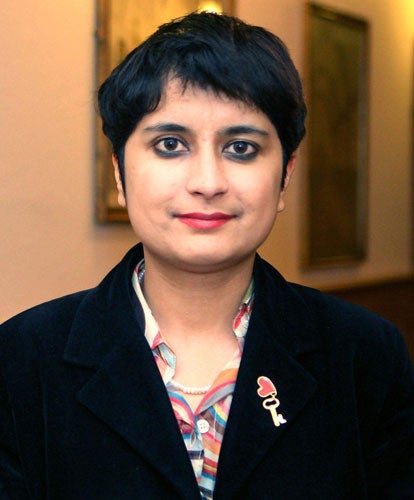Revealed: the full extent of Labour's curbs on civil liberties
Audit report highlights 'permanent erosion' of freedoms since 1997

Your support helps us to tell the story
From reproductive rights to climate change to Big Tech, The Independent is on the ground when the story is developing. Whether it's investigating the financials of Elon Musk's pro-Trump PAC or producing our latest documentary, 'The A Word', which shines a light on the American women fighting for reproductive rights, we know how important it is to parse out the facts from the messaging.
At such a critical moment in US history, we need reporters on the ground. Your donation allows us to keep sending journalists to speak to both sides of the story.
The Independent is trusted by Americans across the entire political spectrum. And unlike many other quality news outlets, we choose not to lock Americans out of our reporting and analysis with paywalls. We believe quality journalism should be available to everyone, paid for by those who can afford it.
Your support makes all the difference.The full extent of state powers to detain people without charge, cover up Government errors, hold the DNA of the innocent and share personal data between public bodies has been revealed in a devastating analysis of the erosion of civil liberties in Britain over the past decade.
Almost 60 new powers contained in more than 25 Acts of Parliament have whittled away at freedoms and broken pledges set out in the Human Rights Act and Magna Carta, according to a new audit of laws introduced since Labour came to power in 1997. The dossier, compiled by the Convention on Modern Liberty, criticises police powers to detain terror suspects for 28 days without charge, new stop-and-search powers handed to police (allowing them to stop people without reason at airports and other designated areas), and restrictions on the right of peaceful protest.
It is the first time such a picture of the erosion of rights under Labour has been published. The rise in surveillance in Britain is also documented, including new laws allowing individuals to be electronically tagged, and the legal interception of letters, emails and phone calls.
Control orders, designed to confine terrorist suspects who have not been found guilty, are also cited. The orders, created under the Prevention of Terrorism Act in 2005, can include the power of house arrest and electronic tagging.
"The right to privacy has been eroded, perhaps permanently, by broad powers to intercept, collect, store and share our private information," the dossier states.
The Coroners and Justice Bill, currently going through Parliament, is accused of seeking to hand the state the power to prevent embarrassing revelations of Government failure becoming public. Coroners are currently able to criticise the Government and any of its agencies that cause a death. But the Bill would hand the state new powers to suspend inquests, or force them into secret. It would also allow Government agencies to share personal data.
David Davis, the Conservative MP who resigned as shadow home secretary and called a by-election to campaign against what he described as the Government's growing attack on British liberties, said the measures cited in the report give hundreds of bodies the power to "snoop, spy and bug" on the public.
"It is a real, serious, systemic problem," Mr Davis said. "I cannot believe it is happening. It's up to us to make sure it is stopped."
Mr Davis said that he did not regret leaving his post as shadow Home Secretary to fight the cause "for a second". "We had to put a check on this process, dribbling away, salami slice by slice," he said. "And if I'd found a cheaper way of doing it, I would have done it more cheaply."
Henry Porter, one of the organisers of the Convention on Modern Liberty, said that there was "little doubt that there is a crisis of liberty in Britain".
"We needed an account to show the legislative programme that swept away many centuries-old rights and transferred so much power from the individual to the state actually existed," he said. "We now have that evidence [and can] oppose what is happening to one of the world's oldest democracies."
A spokesman for the Home Office said that CCTV surveillance and the use of a DNA database were "essential crime-fighting tools".
"The Government has been clear that where surveillance or data collection will impact on privacy they should only be used where it is necessary and proportionate," he said. "The key is to strike the right balance between privacy, protection and sharing of personal data."
Britain under Labour: The Convention on Modern Liberty's take
"Laws stopping people taking pictures of the police have little to do with tackling crime"
Moazzem Begg, Former Guantanamo Bay detainee
"We are now the most spied-upon country in the developed world"
Nick Clegg, Leader of the Liberal Democrats
"We have lived under one of the most authoritarian ages in living memory"
Shami Chakrabarti, Head of Liberty
"This attack on our freedoms under this government threatens us all"
Dominic Grieve, Shadow Justice Secretary
60
New powers in 25 Acts have undermined civil liberties under Labour.
Join our commenting forum
Join thought-provoking conversations, follow other Independent readers and see their replies
Comments